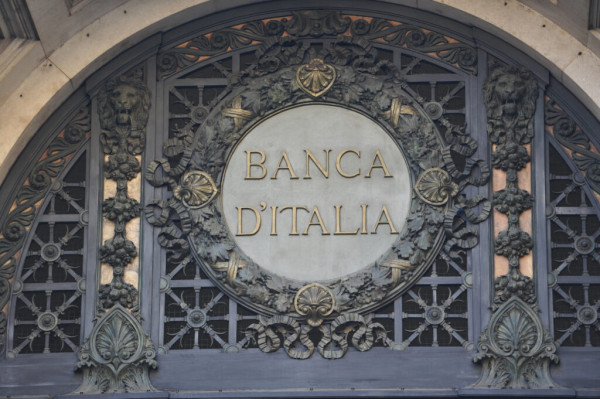The great switcheroo: How France overtook Italy as the EU’s No. 1 budgetary basket case
ROME/PARIS — As budget talks swing into full gear in two of Europe’s most important countries, a monumental shift is taking place under the hood of the EU economy.
Italy, long viewed as a nation of tax evaders and overspenders, is now seen as dutifully thrifty by Brussels technocrats poring over the latest data. Its economy appears — at least in some respects — to be emerging from decades of stagnation, while the tax intake is ticking up and its politics are — at least by Rome’s own standards — stable.
In France it’s a different story. Once so influential in Brussels it could ignore even the most panicked calls for fiscal restraint, Paris is now looking vulnerable. Months of political uncertainty have left a fragile coalition at the helm of government, and new Prime Minister Michel Barnier faces resistance to his plans to push through some €60 billion in draconian spending cuts and tax hikes.
The old dynamic is inverting just as the European Commission threatens both countries with sanctions if they don’t get their public finances in order — with Italy, for once, as the teacher’s pet. Rome predicts that its deficit will come in below target by 2026, but Paris reckons it will need until 2029 to do the same — even if, only a few weeks ago, it was promising Brussels that it could reach that goal by 2027.
“Most of our European neighbors — even the Italians — have succeeded in correcting their situation,” Bank of France Governor François Villeroy de Galhau griped last week. “We have to succeed in doing the same, together.”
Diverging paths
On the surface, things really do seem to be getting better in Italy — while France really does seem to be getting worse.
Last year, Italy’s deficit came in at a whopping 7.4 percent of GDP due to an ill-advised tax incentive for green home renovations that ended up costing over €200 billion. With the scheme now winding down, the removal of its distortive effects reveals an economy that’s not doing too badly.
In budget forecasts last month, the Italian Finance Ministry predicted its deficit would come down to 2.8 percent of gross domestic product by 2026, 0.2 percentage point below the EU’s 3-percent limit.
Though some have decried this as excessive optimism, “the big picture here is that the underlying story in Italy is better than it is in France,” said HSCB Senior Eurozone Analyst Fabio Balboni.
While there will be an element of belt-tightening here — Finance Minister Giancarlo Giorgetti wants the various ministries to find €4 billion in savings next year — much of the improvement in the fiscal balance is coming from tax revenues. Thanks partly to inflation, nominal wages have risen so much that in the 12 months through June, receipts were up 6.2 percent — around €19 billion.
That’s in part because labor contracts in Italy take a lot of time to renew, meaning many have only recently “caught up” with inflation after years of painful negotiations (a process that continues). But rising labor participation, a crackdown on tax evasion expanded under Premier Giorgia Meloni, and the imposition last year of a reduced income tax have all added further incentives to cough up.
Government officials are also hoping to claw around €3.5 billion from banks and insurers by way of a complicated new levy designed to inflict minimum harm — unlike the abortive “windfall tax” that was roundly criticized last year.

While it’s still unclear how successful that tax grab will be, the overall situation still compares favorably to France, where poor forecasting and worse politics have plagued the budget-drafting process in recent years.
Since the pandemic, Paris has regularly overshot its deficit reduction targets because of inaccurate forecasts and tax shortfalls. This year the deficit will hit 6.1 percent of GDP, far above the 5.5 percent official forecast.
“Part of the reason why the public finances got worse is that there has been a tendency in the Finance Ministry to overestimate future growth, future tax revenues,” said Andreas Eisl, an economist at the Jacques Delors Institute in Paris. As a result, Paris has done little to boost tax revenues, and is only now scrambling to make amends.
When it took office, President Emmanuel Macron’s first government cut taxes sharply for companies, hoping to raise their competitiveness by bringing tax rates in line with most of the advanced world. According to France’s court of auditors, that cost around €62 billion in foregone tax income between 2018 and 2023. Until Barnier outlined his plans this month, all subsequent French governments under Macron had systematically refused to raise taxes, reflecting the importance that the president placed on the issue.
On Thursday, as Economy and Finance Minister Antoine Armand presented France’s harsh new budget for next year, he admitted that Paris had failed to forecast its tax income properly and promised to correct its calculation system.
Playing by the rules
Beyond the economic fundamentals, even Italy’s political situation seems more favorable for fiscal consolidation right now.
In the past, Italian leaders have frequently bought voter allegiance with government largesse; their inability to do so under austerity has contributed to Italy’s political instability. But according to one official who has closely followed the budget talks in Rome, Meloni has been able to get away with skimping on spending splurges because her credibility with her base depends more on domestic, identitarian issues.
“Her support isn’t based on economic policies or giving big gifts on public spending — it’s about her communications strategy, cultural policies, migration,” the official said, speaking on condition of anonymity.
While often condemned by human rights groups, such policies have allowed Meloni to preserve her popularity while keeping a tight hold on the purse strings and ignoring calls for additional spending from her more activist coalition partners.
“We can do much better by increasing expenses, but we decided for political reasons … to play by the rules,” grumbled Claudio Borghi, a senator with the far-right League.
The situation in Paris is the opposite. As in other EU countries, France’s public spending skyrocketed during the pandemic. But the government was reluctant to take action to stop the debt from rising, fearful that spending cuts and tax hikes would scare voters ahead of the June European election. With Macron’s subsequent defeats — in both the EU election and the snap national election that followed — the government again dawdled, leaving the dirty work to its successor.
“You can’t take [such] measures when you have lost the elections,” said a former ministerial staffer who was granted anonymity to discuss the issue candidly.

Barnier’s new government now faces a huge task in trying to push tough spending plans through parliament in the coming weeks. While budget minister Lauren Saint-Martin gamely maintained last week that the new budget is not “an austerity cure,” economists fear that new measures could hit growth and employment. Next year, according to forecasts published by the French Economic Observatory (OFCE) this week, GDP growth will slow to 0.8 percent, while 140,000 jobs will be lost.
Credibility eroding
On the bright side, the EU looks likely to cut both countries some slack, possibly acknowledging that the economy has slowed and that reintroducing austerity at this stage might be unwise. Giorgetti said on Wednesday that the Commission would grant Rome an extended period of seven years, rather than the usual four, to put its house in order. French officials said they expect a similar concession to be granted.
But neither ought to get too comfortable. Rome recognizes that domestic tax receipts won’t be enough on their own to finance a step change in Italian growth; for the long term it’s banking on over €100 billion in investments funded by the Next Generation EU program, which are due to be received over the next two years.
At a hearing last week, the Bank of Italy, while broadly favorable, suggested the government’s plan was too vague and optimistic. The question remains whether Italy can keep it up: Seven years is a long time, and future governments may think differently.
“Certainly I remain concerned about the underlying growth story,” said Balboni, noting among other problems Italy’s well-documented demographic decline. “But that’s a long term challenge.”
France, meanwhile, has benefited less from the NGEU funds. Around 60 percent of its €100 billion post-pandemic recovery plan came from national funds, not from the EU.
Slowly but surely, that borrowing has chipped away at the credibility that France has enjoyed in financial markets since the dawn of the euro. The bottom line is that France is now deemed a worse credit risk than Portugal or Spain, both of which were getting bailouts a decade ago. S&P cut its long-term sovereign rating earlier this year to AA-, and rival Fitch, which currently has the same rating, is now suggesting it may go even lower: It cut its outlook to ‘negative’ from ‘stable’ last week.
Michala Marcussen, chief economist at French bank Société Générale, notes that financial markets still “give France the benefit of the doubt.” But those doubts are visibly growing: At the start of the pandemic, France’s 10-year borrowing cost was only 0.25 percentage point above Germany’s and a full 1.25 points below Italy’s. Since then its premium over Germany has increased to 0.80 point, while its funding advantage over Italy has shriveled to only 0.50 point.
That dynamic too could still reverse: It depends to a large extent on whether the gains in Italy represent enduring change, or only a brief interlude. But for many it’s reflective of a real sea change, and heralds tougher times to come. Borghi points to the depressing fall in incomes in Italy over the last 20 years.
“It’s not a problem, it’s a necessity to stay competitive,” he lamented. “And that’s what’s going to happen in France if they don’t turn the tables.”
Ben Munster reported from Rome and Giorgio Leali from Paris.